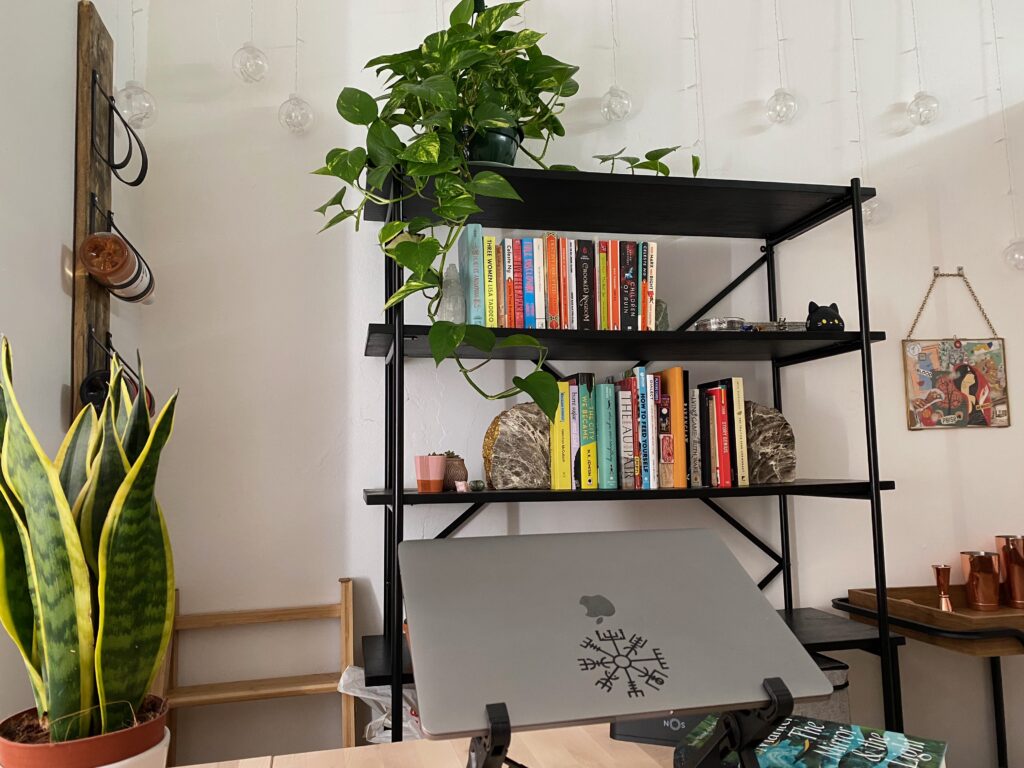 I have always prided myself on being a fast writer. My speed allowed me to begin writing full-time before my debut novel was published, thanks to a series of ghostwriting and work-for-hire gigs. Freelancing is a fast-paced, insecure world. I never knew when or from where my next paycheck will be coming, so I tended to say yes to everything, even when my schedule was flooded. I told myself it was fine. I liked working that way.
I have always prided myself on being a fast writer. My speed allowed me to begin writing full-time before my debut novel was published, thanks to a series of ghostwriting and work-for-hire gigs. Freelancing is a fast-paced, insecure world. I never knew when or from where my next paycheck will be coming, so I tended to say yes to everything, even when my schedule was flooded. I told myself it was fine. I liked working that way.
In some ways, I truly did. It’s not just my writing that is fast-paced. I’m a high-energy person. I’m happiest when pursuing a goal—or better yet, 5-10 goals at once. I embraced the work-hard, play-hard mentality of my 20s, of New York City where I lived at the time, of the stage of my life where I was meant to be building things.
And, too, I enjoyed the new and disparate challenges freelancing offered. When you say yes to almost any project, you wind up writing about topics you never imagined would interest you. I learned I liked co-writing and ghosting, blending my style with other writers’, working as part of a team rather than solo.
Ghostwriting gets a bad rap, because readers sometimes feel those books don’t really “belong” to the authors whose names are on the cover. But in my experience, ghostwriting is highly collaborative. My best clients provide me reams of detail about the books they want—world-building, outlines, character descriptions. My job is to flesh out their vision before they polish the final edits.
I do not feel the same way about books I’ve ghosted as I do about my own stories. I can read reviews of books I’ve ghostwritten without any sense of either pride or cringe. I had a hand in those books’ creation, yes, but they belonged to other creators all along. I never minded. It felt like I had an extra layer of protection from the terror that comes with putting my own stories—my blood, sweat, and tears—out into the world.
But there are trade-offs, I have learned.
I’ve been writing full-time for years now at a frantic, sometimes breakneck, pace. And yet, the shelf where my own books sit looks fairly sparse.
Even before the pandemic, I had planned to change this in 2020. I had planned to slow down, to accept less work-for-hire, to focus on my own projects.
I got what I wished for, though as usual, not in the way I expected.
 Last summer, I worked on my first-ever fiction podcast, created specifically for audio. With the Sara Shepard, no less! Season 1 of MEMORY LANE, a mother-daughter road trip thriller that we co-wrote, launched last month. This week it became a featured Apple Podcast. (The show is also available on Spotify and anywhere else you prefer to listen.)
Last summer, I worked on my first-ever fiction podcast, created specifically for audio. With the Sara Shepard, no less! Season 1 of MEMORY LANE, a mother-daughter road trip thriller that we co-wrote, launched last month. This week it became a featured Apple Podcast. (The show is also available on Spotify and anywhere else you prefer to listen.)
In the fall, I started working on another fiction podcast, this time as the sole author. ELIXIR, a Prohibition-era inspired fantasy about two women falling into star-crossed love in a world of magical speakeasies and deadly mafiosos, launches on podcast platforms everywhere June 3rd.
A short story I wrote for the Hooked app, MORGAN’S SECRET ADMIRER, was turned into a short film.
RULE and RISE launched in French, with Bayard Press.
Some other projects I can’t yet discuss began to grow legs.
Still, it is difficult to shake the nagging sensation that I’m not doing enough. Not writing enough, not being visible enough, not posting enough. I don’t have projects in the pipelines where I’d always dreamed of building readers. I have no idea when or even if I’ll publish another YA book. I hope to, but there are days that well of inspiration feels so dry I have no idea how to fill it again.
In 2020, I backed off most social media platforms entirely, even as well-meaning (non-writer) friends texted: “at least you have plenty of time to write now!” Sure. But time alone =/= creative fuel.
I did get what I asked for, though. I slowed down. Wrote less words-per-month than ever in my adult life. Stopped chasing every single potential project, mostly due to sheer exhaustion.
It’s difficult for someone accustomed to sprinting to start to walk instead. At first, the voice in the back of my head was constant. Pick up the pace, stop slacking, work harder.
Over time, however, that voice grew softer.
It helped that Portugal, where I now live, has a much lower cost-of-living and a better sense of work-life balance than the US. The pay cuts still trigger a knee-jerk panic response, but I can talk myself off that ledge now, logically.
That little unsatisfied voice will probably always be there, in some form or another. But I am learning how and when to tune it out.
At the same time, in my day-to-day life, I feel calmer. I don’t want to say “happier,” because that’s such a fleeting state, but I am content. I exist in the present. I give myself more days off.
Some of those days I wind up riddled with guilt anyway, but more and more often, with practice, I’m able to step away from my desk without shame or anxiety. Because I know that tomorrow—or the next day, or whenever I’m ready—I will pick up the pen again. And when I do, my writing will be all the better for the time I took to breathe.




Leave a Reply